
Magazine: Tuesday, 12 January 2021
COVID-19 has taught us that large-scale change is possible in our societies. At the same time, it also makes fighting challenges, such as unethical company behaviour and climate change, harder – primarily because it might take years for societies to overcome the huge economic shock caused by the necessary defensive response against the pandemic, thus making it harder to invest in tackling these challenges.
But there is much that can be done. In this edition of RSM Discovery magazine, we describe how we can learn from our response to the pandemic in order to organise societies so that they can become more resilient. We also describe specific business developments and organisational forms that might be particularly beneficial in the aftermath.
In this edition of RSM Discovery magazine, we describe how we can learn from our response to the pandemic in order to organise societies so that they can become more resilient.
Climate change, energy transition and the move towards a more circular economy by Koen Dittrich

Sustainability needs to be integrated into the investment decision-making process, alongside or even ahead of the traditional focus on financial returns. By Dirk Schoenmaker

A better governance and communications structure will improve our chances of handling the next crisis better, whatever that may be by Rob van Tulder

Firms need to wake-up to the interconnectivity of the grand challenges we face in the world, and realise opportunities to build synergistic solutions tackling root causes and building resilience. By Steve Kennedy

COVID-19 presents a once in a lifetime opportunity for sustainability improvement by Frank Wijen

Virus test shortages, health equipment shortages, even toilet paper shortages – all have served as a reminder that we are not nearly as secure as we like to think. By Tine de Moor

Leveraging corporate resources for bold and transformative social impact by Lonneke Roza & Karoline Heitmann

A fresh definition of success is being written, one where the gold standard is sound ethical practice. By Muel Kaptein

Rotterdam School of Management (RSM)

Rotterdam School of Management (RSM)

NN Group

Rotterdam School of Management (RSM)

Rotterdam School of Management (RSM)

Rotterdam School of Management (RSM)

Rotterdam School of Management (RSM)

Rotterdam School of Management (RSM)

Rotterdam School of Management (RSM)

Rob van Tulder is a professor of International Business-Society Management at Rotterdam School of Management, Erasmus University (RSM). Professor van Tulder has published extensively on topics of multinational enterprise strategies, high-tech industries, corporate social responsibility, issues management, skills, network strategies, smaller industrial countries (welfare states) and European Community/Union policies.
Frank Wijen is an Associate Professor at the Department of Strategic Management and Entrepreneurship of Rotterdam School of Management, Erasmus University Rotterdam. He holds a PhD in management from Tilburg University, where he also worked as a Senior Researcher. His research interests include institutional processes, globalization, power and influence, organizational learning, and corporate and national environmental management.
Marius van Dijke is professor of behavioral ethics at Rotterdam School of Management (RSM), Erasmus University. He currently serves as head of the department of Business-Society Management. His research is concerned with behavioral ethics and leadership of high integrity.
Dirk Schoenmaker is Professor of Banking and Finance at the Rotterdam School of Management, Erasmus University Rotterdam. His research and teaching focus on the areas of sustainable finance, central banking and financial stability, financial system architecture and European financial integration. He is regular speaker at academic and professional conferences.
Steve Kennedy is Associate Professor researching business sustainability at Rotterdam School of Management, Erasmus University. His current research approaches how systems and resilience thinking can help organizations innovate to tackle grand societal challenges such as climate change and biodiversity loss.
Muel Kaptein is a professor of business ethics and integrity management at the Department of Business-Society Management, Rotterdam School of Management, Erasmus University (RSM). His research interests lie in the area of defining, measuring and managing the ethics of organizations.
Koen Dittrich is Assistant Professor Management of Innovation at Rotterdam School of Management, Erasmus University and Member of Erasmus Research Institute of Management. He is also researcher for the Innovation and Co-Creation Lab at RSM. His research interests include innovation, co-creation, R&D collaboration, regional clusters and small worlds.






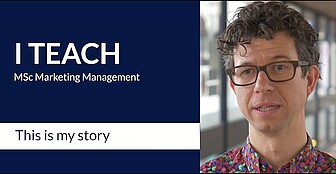

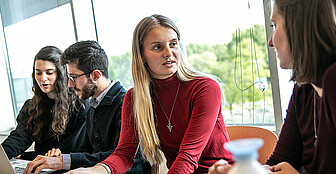
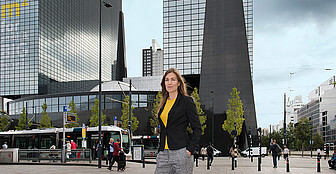

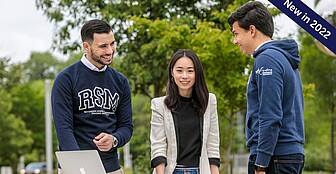



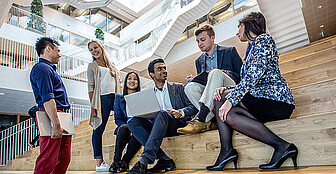



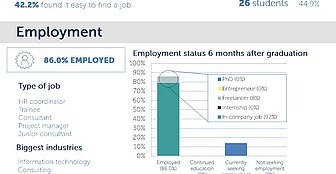


Science Communication and Media Officer

Corporate Communications & PR Manager
Rotterdam School of Management, Erasmus University (RSM) is one of Europe’s top-ranked business schools. RSM provides ground-breaking research and education furthering excellence in all aspects of management and is based in the international port city of Rotterdam – a vital nexus of business, logistics and trade. RSM’s primary focus is on developing business leaders with international careers who can become a force for positive change by carrying their innovative mindset into a sustainable future. Our first-class range of bachelor, master, MBA, PhD and executive programmes encourage them to become to become critical, creative, caring and collaborative thinkers and doers.

RSM uses cookies to measure website statistics, enable social media sharing and for marketing purposes. By clicking accept cookies or by continuing to use this website, you are giving consent for us to set cookies when visiting this website. See our cookie policy for more information about cookies and how to adjust your cookie settings.
